This article was co-authored by Trudi Griffin, LPC, MS. Trudi Griffin is a Licensed Professional Counselor in Wisconsin specializing in Addictions and Mental Health. She provides therapy to people who struggle with addictions, mental health, and trauma in community health settings and private practice. She received her MS in Clinical Mental Health Counseling from Marquette University in 2011.
There are 18 references cited in this article, which can be found at the bottom of the page.
wikiHow marks an article as reader-approved once it receives enough positive feedback. In this case, several readers have written to tell us that this article was helpful to them, earning it our reader-approved status.
This article has been viewed 324,667 times.
A panic attack can seem scary, but even when you're dealing one in the moment, there are simple exercises that can help bring you back into the moment. We'll walk you through some of those, as well as long-term strategies for managing your anxiety.
Steps
Handling Panic Attacks in the Moment
-
1Do some grounding exercises. When you're panicking, you may feel like you don't have control of your body or mind, or you may feel detached from reality. The first thing you need to do is use grounding exercises to orient yourself to the present. Try one or more of the following grounding exercises:
- Trace your hand on a sheet of paper and label the fingers with each of the five senses.
- Do some stretching/yoga.
- Take a walk in the woods.
-
2Breathe deeply. When in the middle of a panic attack, it’s likely you will struggle to breathe naturally. The best way to work through a panic attack is to turn your attention to your breathing. Focusing on your breath and learning to deepen it will help you relax and work through the panic attack. Breath awareness can end a panic attack and decrease their frequency overall.[1]
- Take a moment to notice the sensation of your breath entering your nostrils or mouth as it travels down your airway into your lungs. After a few breaths, try to notice any other sensations that might accompany your breathing. Becoming more aware of the subtle sensations in your body can help you influence how your body responds to emotional spikes.
- First, practice deep breathing exercises when you are calm and not in panic. By practicing in safe and calm environments, you can be more prepared when experiencing a panic attack or intense anxiety. Practicing deep breathing will help you relax and can help you work through any future panic attacks.[2]
Advertisement -
3Stay present. Whatever you are doing, focus on that. If you are driving your car, focus on the sensation of your hands on the steering wheel and your body making contact with the seat.[3] Tune in to your senses and listen to what noises you hear. If you are alone, sit down. Feel the coolness of the tile against your skin or the softness of the carpet. Focus on what sensations your body feels: the fabric of your clothing, the heaviness of shoes on your feet, if you’re leaning your head against something.
- Return to your rational mind. Allow yourself to think clearly. Don’t go immediately to judgments (“I can’t believe this happened, this is embarrassing”) but allow yourself to recognize that you are okay and that nothing is happening that is life-threatening.
-
4Pinpoint the physical symptoms of panic attacks. Panic attacks can happen unexpectedly: one moment you are fine, and the next moment you are convinced you are about to die. Since symptoms of panic attacks can mirror some of the main indicators of a heart attack or stroke, some people fear they are experiencing a heart attack when it is actually a panic attack. You won’t actually pass out or have a heart attack from having a panic attack.[4] Symptoms of a panic attack can include:[5]
- Shortness of breath, difficulty breathing
- Pounding heart
- Intense cold or hot flashes
- Shaking or trembling
- Blurred vision
- Feeling like you’re choking
- Strong stomach pains
- Headaches
- Chest pain
-
5Look for stress triggers. Panic attacks occur more often with stressful life events, like the loss of a loved one, a major life event such as going to university, getting married or having a baby, or psychological trauma like being robbed.[6] If you’ve experienced stress recently and tend to be more of an anxious person, this can heighten your vulnerability to experience a panic attack.
- If you’ve had a panic attack in the past and are experiencing current stressful events, know that you may be at higher risk to experience another panic attack. Spend extra time taking care of yourself.
Managing Anxiety
-
1Manage your stress. Don’t let stress pile up in your life. Manage your stress by engaging in activities each day that help you relieve stress.[7] This can include yoga, meditation, exercise, writing, drawing, or anything that you find helpful in relieving stress.
- One excellent way to manage stress is to get plenty of sleep, around 7 to 8 hours. This can help you handle the stresses of daily life.[8]
-
2Practice progressive muscle relaxation. Practicing relaxation helps you cope with stress and anxiety on a daily basis and can help prevent anxiety over the long-term.[9] To practice muscle relaxation, lie down and relax your body. Tense and then release one muscle group at a time. Start with your right hand and forearm by making a fist, and then relaxing. Move to your upper right arm, left arm, then your face, jaw, neck, shoulders, chest, hips, right and left legs and feet. Take your time and feel yourself let go of any tension within your body.[10]
-
3Expose yourself to panic symptoms. After experiencing a panic attack, some people develop a fear of panic attacks themselves. This can lead to avoiding situations that might induce panic. You can lessen the fear the more you expose yourself to symptoms.[11] If you have persistent panic attacks, you might try to recognize the unique body signals related to your panic attacks, such a tightness in the throat or shortness of breath. When you notice these signs, remind yourself that no physical danger will actually come from a panic attack.[12]
- Practice holding your breath, shallow breathing, or shaking your head from side to side. Mimic the symptoms you experience and do them in your own control. Recognize that you are okay and no harm will come to you.
- Do this in a controlled setting, so that if it happens uncontrolled, it won’t be as fearful.
-
4Get plenty of exercise. While exercise helps your overall health, it is closely related to helping you handle panic attacks. Since panic attacks are tied to physiological effects related to heart function-- like a rise in blood pressure or decreased oxygen-- working on your cardiovascular health can reduce the effects panic attacks have on your body.[13]
- Go for a run or a hike, take a dance class, or try martial arts. Do things that you find fun and get you moving!
-
5Avoid stimulants. Try not to use nicotine products or caffeine, especially in situations where you have had panic attacks in the past.[14] Stimulants speed up many of your physiological processes, which could make a panic attack more likely. They may also make it harder to calm down from a panic attack.
- For example, if you’ve had panic attacks before and are someone who is typically anxious meeting new people, think about skipping that cup of coffee before going on a blind date.
-
6Consider an herbal treatment or supplement. If you're experiencing mild anxiety (not a full-blown panic attack) the herbal supplements chamomile and valerian root have been shown to relieve mild anxiety to some degree. Be sure to check for any medication interactions before taking them and always follow the packaged instructions. There are also other supplements available that can reduce the effects of stress and anxiety. These include:
- Magnesium. Check with your doctor to see if you have a magnesium deficiency, which may be making it harder for your body to deal with past stresses.
- Omega-3 fatty acids. You can take a supplement, like flaxseed oil. Omega-3s have been shown to reduce anxiety.
- Gamma-aminobutyric acid (GABA). If you're deficient in this acid, which is a neurotransmitter, you may have trouble calming your nerves, get headaches, and experience palpitations, among other things. Take 500 to 1000mg of GABA a day or eat more broccoli, citrus, bananas, or nuts.[15]
Getting Help
-
1Engage in Cognitive-Behavior Therapy (CBT). When seeking out treatment, find a mental health professional that practices CBT. Your therapist will help you identify unproductive thinking patterns, which might lead to anxiety or dysfunctional responses, as well as possible triggers for your panic attacks. Gradually, you'll be exposed to the specific conditions you may be afraid of or uncomfortable around. This can desensitize your anxiety. CBT functions to train your thoughts and behaviors to support you and not to cause you problems.[16]
- Practicing CBT along with breathing techniques can be helpful tools for calming your panic and focusing on whatever else is happening in the present moment.
-
2Identify situations that trigger your panic attacks. You may want to make a list of the kinds of situations in which panic attacks happen for you. This can also help you identify when panic attacks seem to happen. This way, you'll be prepared to use coping techniques like gradual exposure (CBT) and awareness/breathing techniques.[17]
- Being proactive towards panic attacks can make you feel more in control and buffer the effect panic attacks will have on your mood and behavior.
-
3Let people who are close to you know about your panic attacks. Explain your situation as clearly as possible. If you're struggling to describe attacks, print off information about panic attacks for them to read. This can be helpful for people who don't get panic attacks, who may have a hard time understanding what they are. People that care about you will appreciate knowing how you're actually feeling. You may be surprised at how supportive they will be, and how helpful their support might feel.
- Strong social support systems have been shown to be essential in dealing with stress, especially in cases of anxiety disorders.[18]
-
4Talk with your doctor about prescription medications. Prescription medications such as tricyclic antidepressants, beta blockers, benzodiazepines, monoamine oxidase inhibitors (MAOIs), and selective serotonin reuptake inhibitors (SSRI’s) can significantly lower the likelihood of panic attack episodes. Check with your doctor to see if one of these types of medications might be right for you.[19]
-
5Reflect on your family history. Panic attacks and anxiety disorders can be traced through families.[20] By understanding your family history, you may get a better understanding of what triggers anxiety in your family members, how they cope, and what you can learn from their experiences.
- Don’t be afraid to ask your family members about their experiences with anxiety. Reach out and have honest conversations with your family about anxiety so you can better understand what is going on within yourself.
-
6Realize that you are not alone. Keep in mind how many people experience panic attacks every day. Some estimates suggest that six million people in America alone have panic attacks, with women suffering from them almost twice as often as men.[21] But, the number of people who have had a single panic attack at some point in their lives is probably much higher. Many of these people get help from various types of support groups.[22]
- If you want to speak face to face with other people who have had panic attacks, don’t be afraid to attend a meeting and share your story with them.
Expert Q&A
-
QuestionWhat are the symptoms of racing thoughts?
 Trudi Griffin, LPC, MSTrudi Griffin is a Licensed Professional Counselor in Wisconsin specializing in Addictions and Mental Health. She provides therapy to people who struggle with addictions, mental health, and trauma in community health settings and private practice. She received her MS in Clinical Mental Health Counseling from Marquette University in 2011.
Trudi Griffin, LPC, MSTrudi Griffin is a Licensed Professional Counselor in Wisconsin specializing in Addictions and Mental Health. She provides therapy to people who struggle with addictions, mental health, and trauma in community health settings and private practice. She received her MS in Clinical Mental Health Counseling from Marquette University in 2011.
Professional Counselor Racing thoughts are also known as excessive rumination. When a person cannot “shut their mind off” or calm their brain enough to choose what to think rather than the brain thinking whatever it wants to at excessive speeds.
Racing thoughts are also known as excessive rumination. When a person cannot “shut their mind off” or calm their brain enough to choose what to think rather than the brain thinking whatever it wants to at excessive speeds. -
QuestionWhy does deep breathing help you relax?
 Dr. Niall Geoghegan, PsyDDr. Niall Geoghegan is a Clinical Psychologist in Berkeley, CA. He specializes in Coherence Therapy and works with clients on anxiety, depression, anger management, and weight loss among other issues. He received his Doctorate in Clinical Psychology from the Wright Institute in Berkeley, CA.
Dr. Niall Geoghegan, PsyDDr. Niall Geoghegan is a Clinical Psychologist in Berkeley, CA. He specializes in Coherence Therapy and works with clients on anxiety, depression, anger management, and weight loss among other issues. He received his Doctorate in Clinical Psychology from the Wright Institute in Berkeley, CA.
Clinical Psychologist Taking deep breaths helps you control the energy of your body, which helps calm your system down when you are feeling anxious.
Taking deep breaths helps you control the energy of your body, which helps calm your system down when you are feeling anxious.
References
- ↑ Barrera, T. L., Grubbs, K. M., Kunik, M. E., & Teng, E. J. (2014). A Review of Cognitive Behavioral Therapy for Panic Disorder in Patients with Chronic Obstructive Pulmonary Disease: The Rationale for Interoceptive Exposure. Journal of Clinical Psychology in Medical Settings, 21(2), 144–154. http://doi.org/10.1007/s10880-014-9393-4
- ↑ http://www.helpguide.org/articles/anxiety/panic-attacks-and-panic-disorders.htm
- ↑ http://www.healthcentral.com/anxiety/c/95431/39761/battling-present/
- ↑ http://anxietynetwork.com/content/what-you-fear-most-cannot-happen
- ↑ http://www.nimh.nih.gov/health/topics/panic-disorder/index.shtml
- ↑ http://www.helpguide.org/articles/anxiety/panic-attacks-and-panic-disorders.htm
- ↑ http://www.helpguide.org/articles/anxiety/panic-attacks-and-panic-disorders.htm
- ↑ http://www.mayoclinic.org/diseases-conditions/panic-attacks/basics/lifestyle-home-remedies/con-20020825
- ↑ http://www.helpguide.org/articles/anxiety/panic-attacks-and-panic-disorders.htm
- ↑ http://www.cci.health.wa.gov.au/docs/ACF3C8D.pdf
- ↑ http://www.helpguide.org/articles/anxiety/panic-attacks-and-panic-disorders.htm
- ↑ http://www.paniccure.com/Approaches/CBT/overcome/Overcome-3.htm
- ↑ https://www.nhs.uk/conditions/stress-anxiety-depression/understanding-panic/
- ↑ http://www.webmd.com/anxiety-panic/understanding-panic-attack-treatment
- ↑ http://www.ncbi.nlm.nih.gov/pubmed/12662130
- ↑ https://www.helpguide.org/articles/anxiety/therapy-for-anxiety-disorders.htm
- ↑ https://www.helpguide.org/articles/anxiety/panic-attacks-and-panic-disorders.htm
- ↑ Ozbay, F., Johnson, D. C., Dimoulas, E., Morgan, C. A., Charney, D., & Southwick, S. (2007). Social Support and Resilience to Stress. Psychiatry (Edgmont), 4(5), 35–40.
- ↑ https://www.mayoclinic.org/diseases-conditions/panic-attacks/diagnosis-treatment/drc-20376027
- ↑ Mosing, M. A., Gordon, S. D., Medland, S. E., Statham, D. J., Nelson, E. C., Heath, A. C., … Wray, N. R. (2009). Genetic and environmental influences on the co-morbidity between depression, panic disorder, agoraphobia, and social phobia: a twin study. Depression and Anxiety, 26(11), 1004–1011. http://doi.org/10.1002/da.20611
- ↑ http://www.nimh.nih.gov/health/topics/panic-disorder/index.shtml
- ↑ http://www.adaa.org/supportgroups
About This Article
To cope with a panic attack in the moment, try to take deep breaths and ground yourself. Panic attacks usually start with shortness of breath or difficulty breathing, so if you focus on breathing slowly in and out, it may be easier for you to stay in control of the situation. This is especially helpful when the panic attack seems to come out of the blue, since there was no trigger to warn you ahead of time! You can also work on managing the stress and anxiety in your daily life, which can help prevent future panic attacks. Relaxing practices, like yoga, meditation, exercise, writing, and drawing, along with getting plenty of rest every night, can help you face daily stressors more calmly. To learn about supplements that might help with panic attacks, read on!


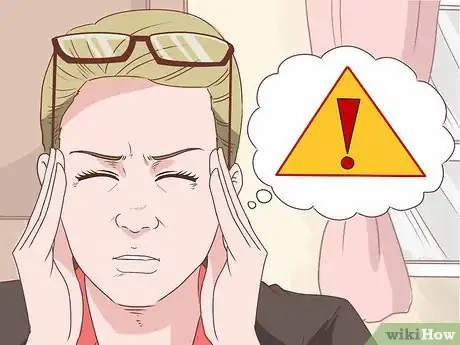
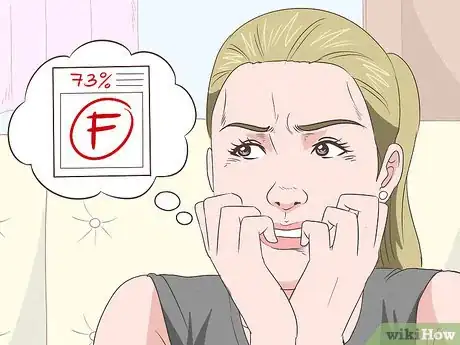
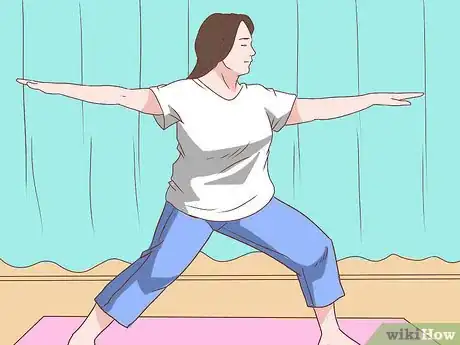
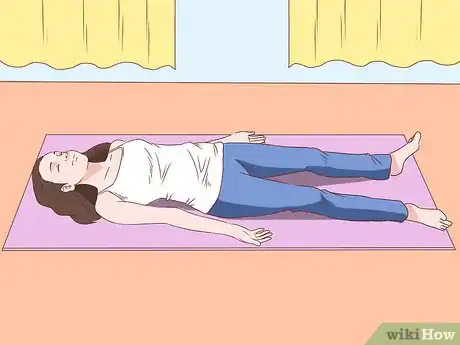


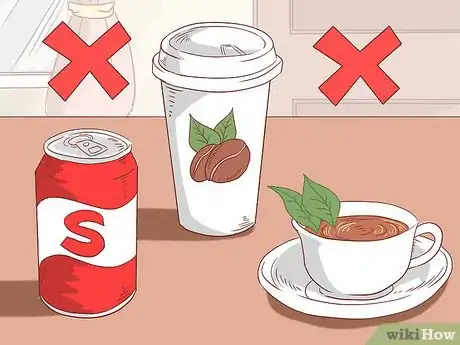
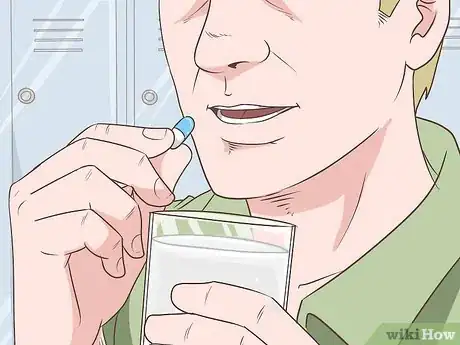

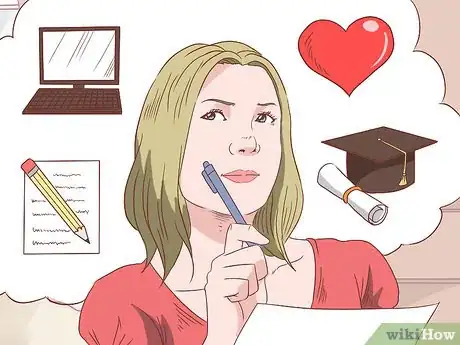

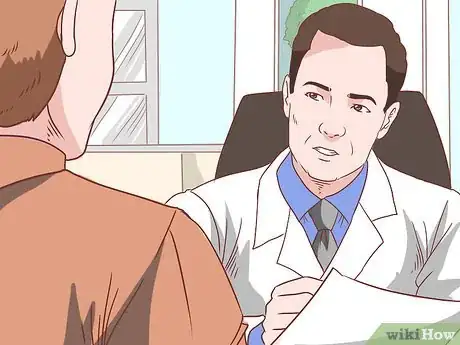
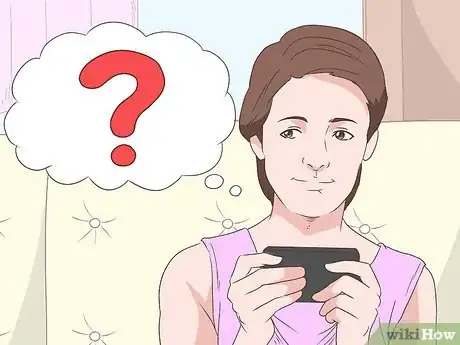






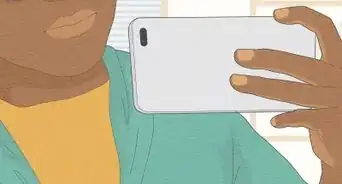




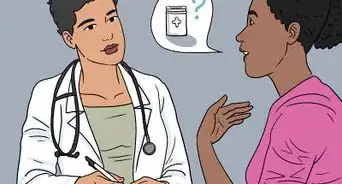
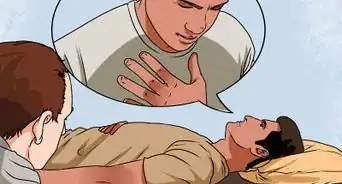


















































Medical Disclaimer
The content of this article is not intended to be a substitute for professional medical advice, examination, diagnosis, or treatment. You should always contact your doctor or other qualified healthcare professional before starting, changing, or stopping any kind of health treatment.
Read More...